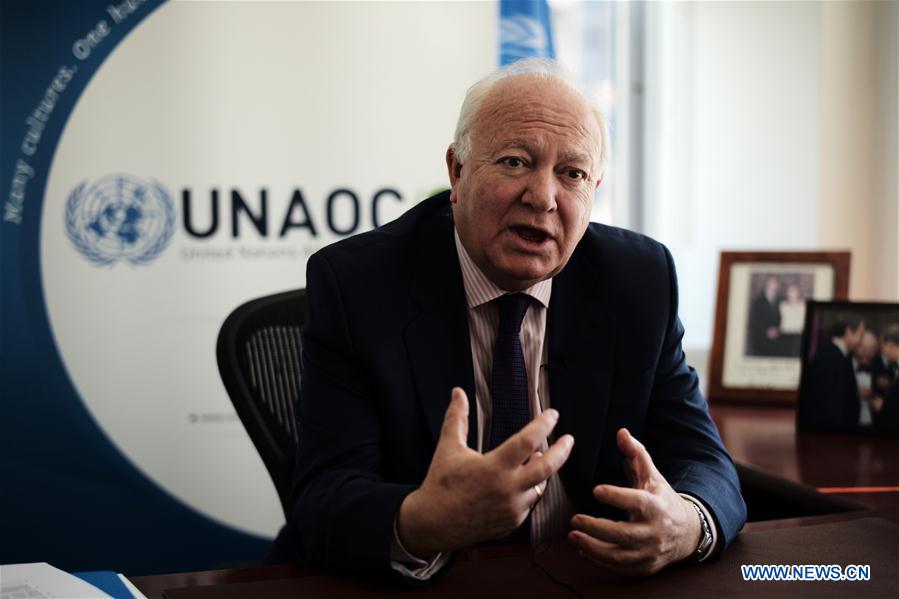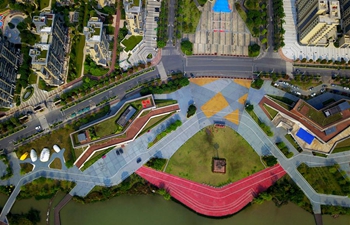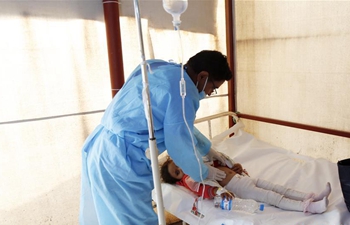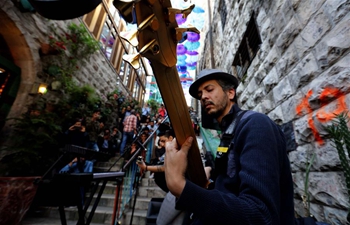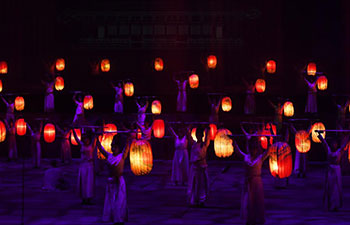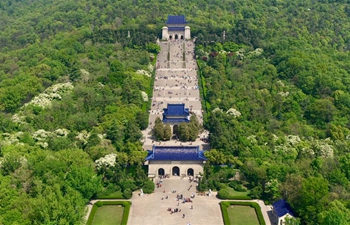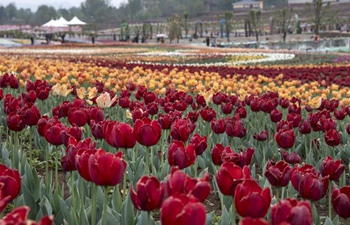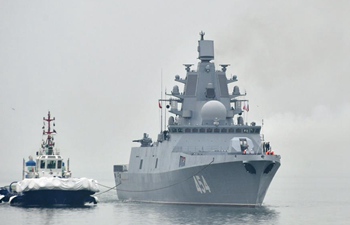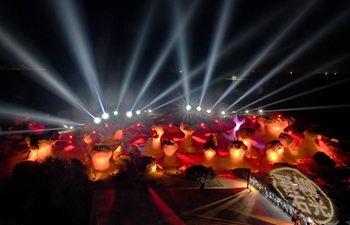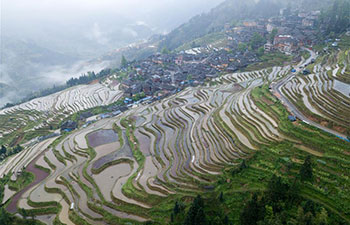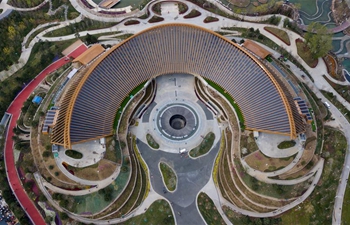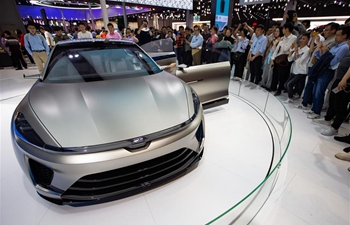Miguel Angel Moratinos, High Representative for the United Nations Alliance of Civilizations (UNAOC), speaks during an interview with Xinhua in New York, the United States, April 4, 2019. The China-proposed Belt and Road Initiative (BRI) is extremely visionary, very timely and able to help boost the common development of mankind, said the chief of the United Nations Alliance of Civilizations (UNAOC) . (Xinhua/Li Muzi)
by Xinhua writer Wang Jiangang
UNITED NATIONS, April 24 (Xinhua) -- The China-proposed Belt and Road Initiative (BRI) is extremely visionary, very timely and able to help boost the common development of mankind, said the chief of the United Nations Alliance of Civilizations (UNAOC) .
Miguel Angel Moratinos, a veteran diplomat and former Spanish foreign minister, formally replaced Nassir Abdulaziz al-Nasser of Qatar as UNAOC high representative on Jan. 1.
All the way through a recent interview with Xinhua, Moratinos gave thumbs up to the BRI and ardently expressed his wish to strengthen cooperation with the Chinese government.
"It has a very clearly strategic thinking. It is a way of how to understand the challenges of today's world. One of the ways is to really reinforce the communication, interconnection and understanding among different countries, nations, cultures and civilizations," he said.
Noting that the initiative was proposed at a time when the world was still "concerned about the financial crisis," the UNAOC chief said that President Xi Jinping understood that "the time has come for presenting a new way to engage with different countries and different nations, in order to create a better environment for promoting peace, stability and security in the world."
"Practice has proven that it is a good initiative" and the BRI "has been able to address the majority of the issues that are essential for the development of human being," he stressed.
"The Belt and Road Initiative is to connect people, connect ideas, facilitate the exchange of goods. But also, it has the cultural element, the people-to-people (exchange)," said Moratinos.
"This interconnection is not only through infrastructure, through physical infrastructure or energetic infrastructure -- pipelines, roads, ports and airports, but also about how people live together, how the Chinese people connect with the west part of Asia, Central Asia, Europe, the Mediterranean, and certain African countries," he noted.
In his view, putting people and cultures together is "the basic for multilateralism." "But as for multilateralism, we have to make it credible. We have to introduce into this multilateral framework some specific ideas and projects," he said.
"The Belt and Road Initiative has demonstrated that you (China) can be multilateral, you can be efficient, you can produce results, you can improve the lives of the people," said the UNAOC chief.
Statistics show that over the past years, this initiative has so far received positive responses and support from more than 100 countries and international organizations.
"People (should) understand and recognize that the world has more than one civilization, and there is not the one that is superior to the other," he said.
Noting that all civilizations add radiance and beauty to each other, the UNAOC chief said the BRI can help enhance people's awareness that all civilizations could live in peace side by side with more exchanges of goods, cultures and people as well.
"Each of those (civilizations) has to contribute to the wellbeing of the whole humanity. That is the role and the work of the Alliance of Civilizations to respect each of those civilizations," he said.
Established in 2005, UNAOC aims to improve understanding and cooperation among nations and peoples across cultures and to reduce polarization at local and global levels. It helps develop more inclusive societies, in which diversity is experienced as an asset.
In response to criticism from some Western countries that China is creating "debt traps" for some African countries in its efforts to promote the BRI, Moratinos said that criticism must be based on facts and have "a real element."
"I don't see any substantially negative element in this initiative," noted the UNAOC chief.
Encouraging all related countries to get on board, Moratinos said, "The more we integrate ourselves in the world, the better. The more we cooperate, the better. The more we are in for the multilateral track, the better."
During the 45-minute interview, the veteran diplomat repeatedly expressed his wish to strengthen cooperation with the Chinese government.
Calling the BRI "a great success," he said the remaining question is how to work together to "combine this initiative and all other initiatives that the United Nations is promoting," adding that he would try his utmost to make a synergy between the BRI and the alliance.
"China brings us a tremendous instrument for the Alliance of Civilizations to promote the understanding among different religions, different cultures, different civilizations, which is also our main objective," he said.
"At the same time, we will work hard to create the environment for the exchange of ideas, respect each other and work together, and live together," he said.




